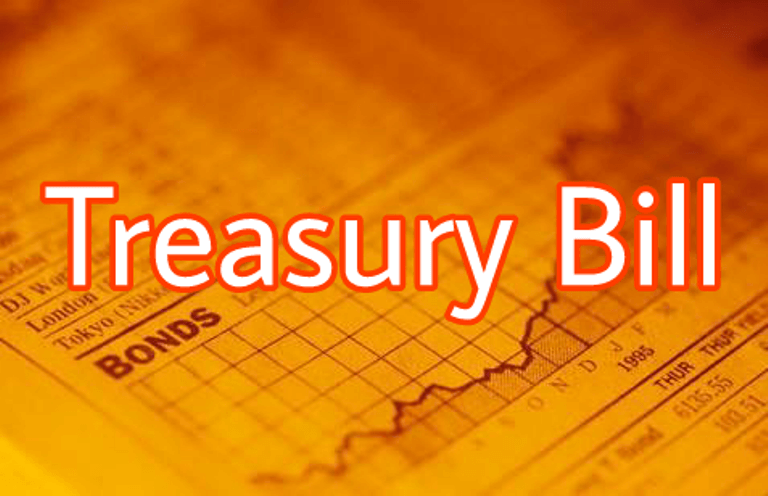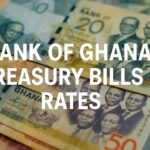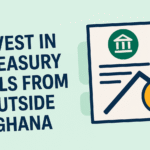Understanding Treasury Bill Interest Rates in Ghana: Historical Trends, Current Dynamics, and What Drives Them
As an experienced investor, I’ve always been fascinated by the intricacies of financial markets, especially when it comes to government securities like Treasury Bills (T-bills). In Ghana, T-bills are a cornerstone of the investment landscape, offering a low-risk avenue for individuals and institutions to grow their wealth. However, one of the most critical aspects of investing in T-bills is understanding what drives their interest rates. In this blog post, I’ll delve into the factors that influence Treasury Bill interest rates in Ghana, explore historical trends, and analyze the current dynamics shaping the market.
For the latest Treasury Bill Rates for the Week starting 21st July 2025, click on the link below:
Latest BoG Treasury Bill (TBills) for 21st July 2025
What Are Treasury Bill Interest Rates?
Treasury Bill interest rates represent the return investors earn for lending money to the Government of Ghana. These rates are determined through a competitive auction process, where investors bid for T-bills by specifying the discount rate they are willing to accept. The Bank of Ghana then sets the final rate based on the bids received.
T-bills are zero-coupon securities, meaning they are sold at a discount and redeemed at face value upon maturity. The difference between the purchase price and the face value is the investor’s return, expressed as an annualized yield.
READ ALSO:
- TREASURY BILL VS TREASURY BONDS IN GHANA
- TREASURY BILL INTEREST RATE CALCULATIONS IN GHANA
- HOW TO BUY TREASURY BILLS IN GHANA 2025
Key Factors Influencing Treasury Bill Interest Rates in Ghana
1. Monetary Policy by the Bank of Ghana
The Bank of Ghana (BoG) plays a pivotal role in setting the tone for interest rates through its monetary policy decisions. Key tools include:
- Policy Rate: The benchmark interest rate set by the BoG, which influences the cost of borrowing in the economy. A higher policy rate typically leads to higher T-bill rates.
- Open Market Operations (OMOs): The BoG buys or sells government securities to control liquidity in the financial system. Selling T-bills reduces liquidity and pushes rates higher while buying them has the opposite effect.
2. Inflation Expectations
Inflation erodes the purchasing power of money, so investors demand higher returns to compensate for this risk. When inflation is high or expected to rise, T-bill rates tend to increase. Conversely, low inflation leads to lower rates.
3. Demand and Supply Dynamics
- High Demand for T-bills: When there’s strong demand for T-bills (e.g., during economic uncertainty), interest rates tend to fall because the government can borrow at lower costs.
- Low Demand for T-bills: When demand is weak, the government may need to offer higher rates to attract investors.
4. Fiscal Policy and Government Borrowing Needs
The Government of Ghana issues T-bills to finance its budget deficits and short-term obligations. If the government’s borrowing needs increase, it may issue more T-bills, potentially driving rates higher.
5. Exchange Rate Stability
A stable exchange rate boosts investor confidence, leading to lower T-bill rates. Conversely, currency volatility can push rates higher as investors demand a risk premium.
6. Global Economic Conditions
Global factors, such as changes in U.S. Treasury yields or shifts in investor sentiment toward emerging markets, can influence T-bill rates in Ghana. For example, rising U.S. interest rates may lead to capital outflows from Ghana, pushing local rates higher.

Historical Trends in Treasury Bill Rates
Over the past decade, Treasury Bill rates in Ghana have experienced significant fluctuations, reflecting changes in the economic landscape. Here are some key trends:
2013–2016: High Inflation and Rising Rates
- During this period, Ghana faced high inflation, driven by fiscal deficits and currency depreciation.
- T-bill rates peaked at over 25% in 2016 as the government struggled to attract investors amid economic challenges.
2017–2019: Stabilization and Declining Rates
- The implementation of the IMF-supported Extended Credit Facility (ECF) program helped stabilize the economy.
- Inflation declined, and the cedi stabilized, leading to a gradual reduction in T-bill rates. By 2019, rates had fallen to around 14–16%.
2020–2021: COVID-19 Impact
- The COVID-19 pandemic led to increased government borrowing to finance stimulus packages and healthcare spending.
- T-bill rates initially fell due to excess liquidity in the banking system but later rose as inflation picked up.
2022–2023: Rising Inflation and Tightening Monetary Policy
- Inflation surged due to global supply chain disruptions, rising fuel prices, and currency depreciation.
- The Bank of Ghana raised the policy rate multiple times to curb inflation, leading to higher T-bill rates. As of 2023, rates have hovered between 18% and 25%.
- BoG Treasury Bill Rate This Week 21st July 2025 in Ghana
- Buying Government Of Ghana Treasury Bills Outside Ghana
- Payday Loans Online Your Deadline To Financial Emergencies
- Top 5 Side Hustles to Beat Load-Shedding in South Africa
- 7 Ways To Start Freelancing in South Africa: A Step-by-Step Guide for 2025
- Affiliate Marketing in South Africa: Best Programs for Beginners 2025
Current Dynamics Shaping T-bill Rates
1. High Inflation and Tight Monetary Policy
- Inflation remains elevated, driven by global and domestic factors.
- The Bank of Ghana has maintained a tight monetary policy stance, keeping T-bill rates high to attract investors and stabilize the cedi.
2. Increased Government Borrowing
- The government’s borrowing needs have risen due to fiscal pressures and debt servicing obligations.
- This has led to higher T-bill issuance, putting upward pressure on rates.
3. Investor Sentiment
- Despite the high rates, investor confidence has been affected by concerns about debt sustainability and exchange rate volatility.
- Foreign investors, in particular, have been cautious, leading to reduced demand for T-bills.
4. Global Interest Rate Hikes
- Central banks in advanced economies, such as the U.S. Federal Reserve, have raised interest rates to combat inflation.
- This has increased the cost of borrowing globally and influenced T-bill rates in Ghana.
What Does This Mean for Investors?
Opportunities
- Attractive Returns: With T-bill rates currently high, investors can earn significant returns, especially compared to traditional savings accounts.
- Low Risk: T-bills are backed by the Government of Ghana, making them one of the safest investment options.
Risks
- Inflation Risk: High inflation can erode the real value of returns.
- Currency Risk: For foreign investors, exchange rate fluctuations can impact returns.
Conclusion
Treasury Bill interest rates in Ghana are influenced by a complex interplay of factors, including monetary policy, inflation, government borrowing, and global economic conditions. Understanding these dynamics is crucial for making informed investment decisions.
Historically, T-bill rates have fluctuated in response to economic challenges and policy interventions. Currently, high inflation and tight monetary policy are driving rates upward, presenting both opportunities and risks for investors.
As an experienced investor, I recommend keeping a close eye on macroeconomic indicators and central bank policies to navigate the T-bill market effectively. Whether you’re a conservative investor seeking safety or a savvy investor chasing high returns, T-bills remain a valuable tool for building a resilient investment portfolio.
Disclaimer: This post is for informational purposes only and does not constitute financial advice. Please consult a financial advisor before making any investment decisions.









